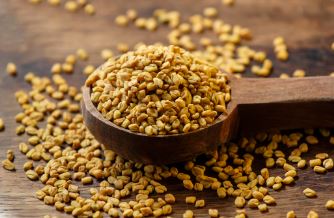Updates
Uses of Fenugreek Seeds
Fenugreek seeds are a common ingredient in many traditional dishes and have been used for centuries in traditional medicine. These small, golden-brown seeds have a unique, slightly bitter taste and are rich in a variety of nutrients, including protein, fiber, and minerals such as iron and potassium. In this article, we will explore some of the many uses of fenugreek seeds, including their potential health benefits, culinary applications, and traditional medicinal uses.
One of the most well-known uses of fenugreek seeds is as a galactagogue, a substance that can increase milk production in breastfeeding women. The seeds contain compounds that mimic the effects of estrogen and progesterone, which can help to stimulate milk production. Many nursing mothers swear by fenugreek supplements, which are widely available in capsule form, to increase their milk supply.
Fenugreek seeds are also used in traditional medicine to help control blood sugar levels. They contain a type of fiber called galactomannan, which can slow down the absorption of carbohydrates and help to regulate blood sugar levels. This makes fenugreek seeds a beneficial addition to the diet of individuals with diabetes.
Fenugreek seeds may also be beneficial for heart health. They contain compounds that can lower cholesterol levels and decrease inflammation in the body. This, in turn, may help to reduce the risk of heart disease.
In addition to their potential health benefits, fenugreek seeds also have a number of culinary uses. They are a common ingredient in Indian and Middle Eastern cuisines and are often used to add a unique, slightly bitter flavor to curries, stews, and vegetable dishes. Fenugreek seeds can be used whole or ground and can be added to a variety of recipes, including breads, soups, and salads.
Fenugreek seeds can also be sprouted and used as a microgreen or in salads. Sprouted fenugreek has a distinctive and nutty flavor and makes a great addition to sandwiches and wraps.
Finally, fenugreek seeds can be used to make an herbal tea by boiling them in water and allowing them to steep for several minutes. This tea can have a soothing and calming effect and is thought to be helpful for soothing sore throats and fighting off colds and flu.
In conclusion, fenugreek seeds have a wide range of uses, both culinary and medicinal. They are rich in nutrients and contain compounds that can help to regulate blood sugar levels, increase milk production, and promote heart health. With their unique and slightly bitter flavor, fenugreek seeds can add depth and complexity to a variety of dishes and can be used in many different ways to add flavor and nutrition to the diet. It is worth noting that although fenugreek has been used in traditional medicine for centuries, there is still a lack of scientific research that support the claims of its medicinal properties. It is best to consult with a healthcare professional before taking large amounts of fenugreek supplements or making any significant dietary changes.


















